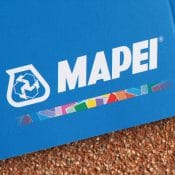Interested in starting a new business in Egypt?
Soliman, Hashish & Partners is constantly in the media spotlight!
Scholarship for studying the Master of Laws in International Trade Law at International Training Centre of ILO
All Categories
- COVID-19 (2)
- Firm News (43)
- All (110)
- CSR (10)
- Briefings (67)
- Energy & Electricity (2)
- Intellectual Property Rights (1)
- Mergers & Acquisitions (1)
- Real Estate (2)
- Telecoms, Media & Technology (10)
- Antitrust (1)
- Banking & Finance (20)
- Corporate (20)
- Corporate Crimes (3)
- Dispute Resolution (5)
- Employment (4)
Recent News
New Labour Law No. 14 of 2025
Mapei Opens New Manufacturing Facility in Egypt
Cabinet Decree Granting New Tax Incentives to Industrial Investment Projects

Frédéric Soliman
Managing Partner
On 30 December 2023, Cabinet Decree No. 77 of 2023 was issued, which grants new tax incentives to some industrial investment projects under the Investment Law No. 72 of 2017 (the “Decree”), in the form of a discount off the taxable net profits.
The Investment Projects subject to the tax incentives in accordance with the Decree are as follows:
- Investment Project in the industrial field producing certain targeted products, or its expansion thereof resulting in increase in production.
- Investment Project’s production of targeted products exceeding 50% of its turnover.
- Targeted products include, inter alia, steel products, chemical products, textile products, and/or metal and electrical machineries/tools as indicated by the Industrial Development Authority.
The cumulative condition required to be satisfied is the commencement of the Investment Project’s production or activity by July 25, 2029, taking into consideration that the said start date shall be determined based on a decision issued by a special committee established by virtue of a resolution of GAFI’s Executive President;
- The Economic Zone of the Suez Canal;
- The Economic Zone of the Golden Triangle; and
- The areas in most need of development including (i) South Giza Governorate, Governorates in the Suez Canal Region such as Port Said, Ismailia, and Suez, (ii) Border Governorates which include Red Sea Governorate from Southern Safaga and (iii) Upper Egypt Governorates, in accordance with Ministerial Decree No. 7 of 2020.
Furthermore, a minimum of 50% of the Investment Project shall be funded by foreign currency, whereby fund means all types of assets entered into the Investment Project, regardless of their type, which have a material value, whether cash, in-kind, or moral, which also includes (the “Foreign Fund”):
- Foreign currency transferred via Egyptian banks used for the establishment of the Investment Project;
- Foreign currency transferred via Egyptian banks used for the subscription in the Investment Project’s capital in Egypt;
- Machineries, tools, primary materials, supplied goods and transportation equipment exported from outside of Egypt for the establishment of the Investment Project;
- Profits transferrable outside of Egypt used for the establishment of the Investment Project.
The types of tax incentives are: (i) 35% discount on the amount of the Corporate Income Tax (the “CIT”) to be paid, according to the Tax Return, in the event that the Foreign Fund is between 50% and 75%; (ii) 45% discount on the amount of the CIT to be paid, according to the Tax Return, in the event the Foreign Fund is between 75% and 90%; or (iii) 55% discount on the amount of the CIT to be paid, according to the Tax Return, in the event the Foreign Fund is more than 90%.
However, it is important to note that an Investment Project shall not benefit from the aforementioned tax incentives subject of this Decree in the event that any of its shareholders and/or founding shareholders (i) participated in an Investment Project by using the material assets of an active company during the validity of the Decree, or (ii) liquidated a company by or before July 25, 2029 with the purpose of establishing an Investment Project to benefit from the tax incentive.
The tax incentive shall be cancelled immediately in the event that the aforementioned violation has been evidenced, with the Investment Project’s commitment to return the tax incentive value in addition to an amount based upon the insurance and discount rates issued by the Central Bank of Egypt.







